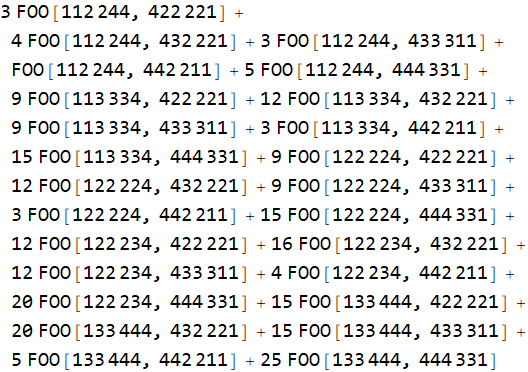complicatedFunctionOfIndices = FOO[FromDigits @ Sort @ #, FromDigits @ ReverseSort @#2]&
SeedRandom[1]
myg = RandomChoice[{3000, 1, 1, 1, 1, 1} -> Range[0, 5], {4, 4, 4, 4, 4, 4}];
Dimensions[myg]
{4, 4, 4, 4, 4, 4}
sa = SparseArray[myg];
SparseArray[myg]
nonZeroPositions = sa["NonzeroPositions"]
{{1, 1, 3, 3, 4, 3}, {1, 4, 3, 3, 4, 4}, {2, 2, 1, 2, 2, 4}, {4, 2, 1, 2, 1, 4}, {4, 2, 2, 1, 3, 2}}
nonZeroValues = sa["NonzeroValues"]
{3, 5, 3, 1, 4}
sum = Sum[sa[[## & @@ i]] sa[[## & @@ j]] complicatedFunctionOfIndices[i, j],
{i, nonZeroPositions}, {j, nonZeroPositions}]
As expected sum has 25 terms.
We get the same result using Total:
total = Total[sa[[## & @@ #]] sa[[## & @@ #2]] complicatedFunctionOfIndices[##] & @@@
Tuples[nonZeroPositions, 2]];
sum == total
True
Note: Per Greg Hurt's comment above, replace "NonzeroPositions" with "ExplicitPositions" if you have version 13.0,


